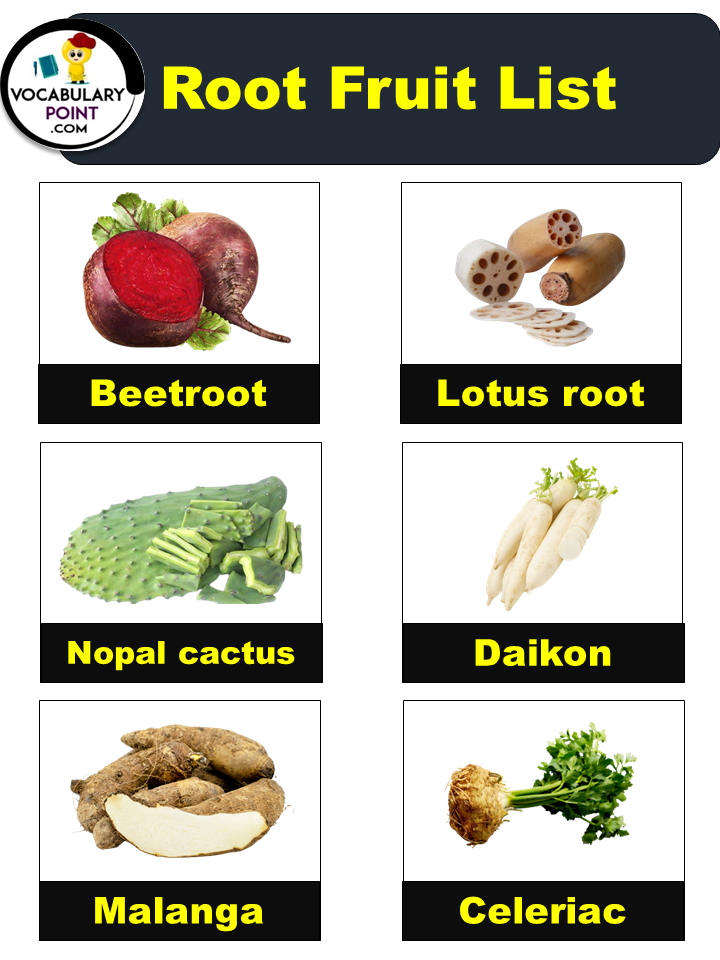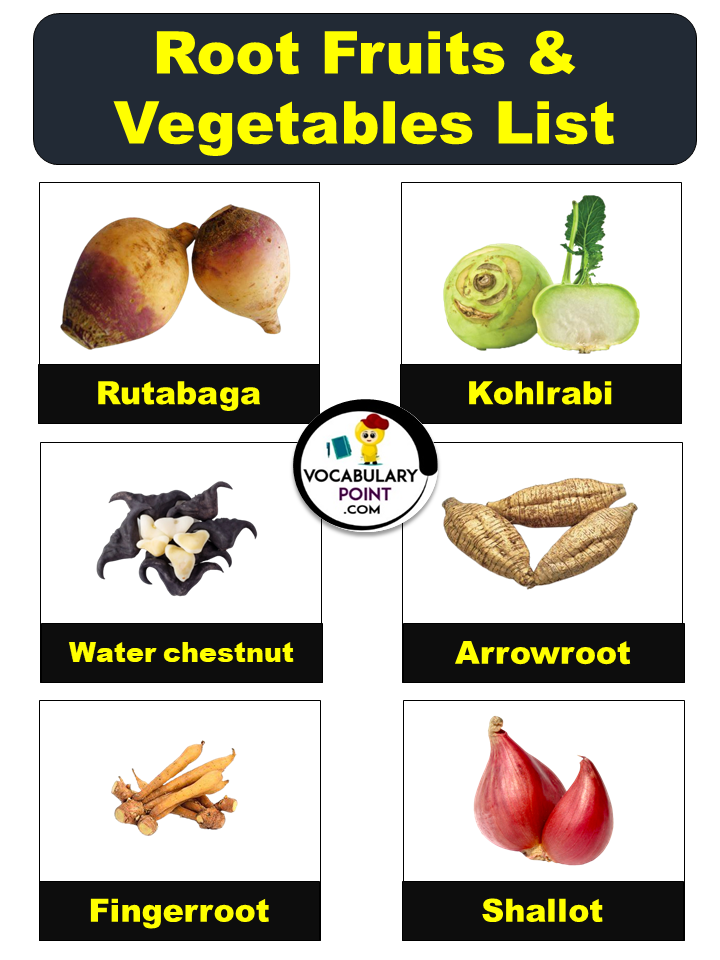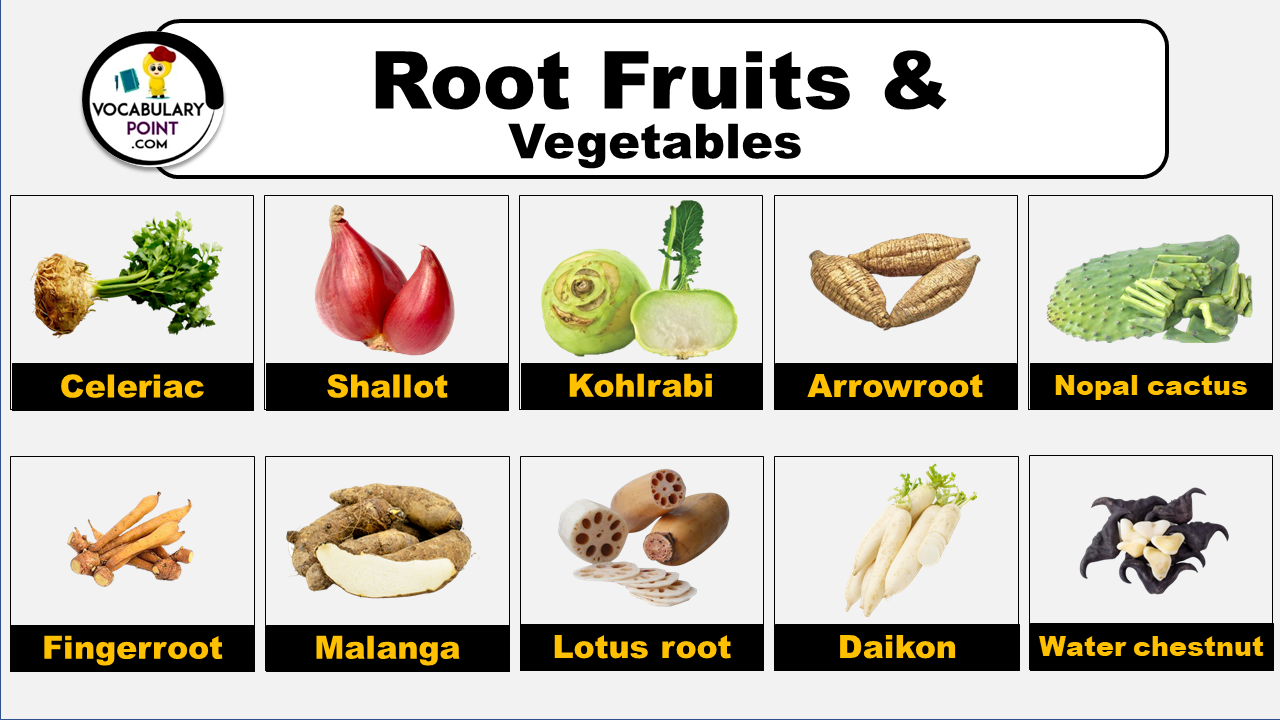Root vegetables are often overlooked in the world of culinary delights, overshadowed by their more glamorous counterparts like vibrant fruits and leafy greens. However, these humble underground gems deserve our attention and appreciation for their unique flavors, versatility in the kitchen, and nutritional benefits. From the earthy sweetness of carrots to the creamy richness of potatoes, root vegetables offer a diverse range of tastes and textures that can elevate any dish.
List Of Root Vegetables
Ginseng
A perennial plant valued for its medicinal properties, especially its root, known to enhance energy and reduce stress.
Potato
A starchy tuber of the plant Solanum tuberosum, a staple food in many parts of the world.
Cassava
A tropical root vegetable used for its carbohydrate-rich tubers, also known as yuca or manioc.
Indian Breadroot
Also known as Pediomelum esculentum, a plant whose large, starchy roots were traditionally consumed by Native Americans.
Chinese Water Chestnut
A grass-like sedge known for its sweet, crunchy, edible corms, often used in Asian cuisine.
Queen Anne’s Lace Root
The root of the wild carrot, Daucus carota, edible when young and used historically for its medicinal properties.
Celeriac
A variety of celery cultivated for its edible, bulbous root, known for its unique flavor in culinary uses.
Squill
A bulbous plant, Scilla spp., with medicinal properties, traditionally used as a diuretic and expectorant.
Chinese Artichoke
A tuberous herb, Stachys affinis, with crisp, sweet, nutty-flavored tubers, used in Asian and French cuisine.
Mashua
An Andean tuber, Tropaeolum tuberosum, known for its peppery taste and traditionally grown alongside potatoes and oca.
Angelica Root
Derived from the Angelica plant, known for its sweetly scented roots used in herbal medicine and culinary applications.
Licorice Root
The root of Glycyrrhiza glabra, used for its sweet flavor in candies and for medicinal properties in soothing coughs and ulcers.
Goldenseal
A North American woodland plant, Hydrastis canadensis, prized for its root in traditional medicine to treat infections.
Horseradish
A pungent root vegetable, Armoracia rusticana, used as a spice or condiment, especially in Western cuisine.
Wild Ginger
A perennial plant, Asarum spp., known for its heart-shaped leaves and rhizome that smells and tastes like ginger.
Taro
A tropical plant, Colocasia esculenta, with a starchy root, a staple food in many Pacific and Caribbean diets.
Water Chestnut
An aquatic vegetable, Eleocharis dulcis, known for its crisp, white, edible corms used in Asian cuisine.
Chinese Yam
A tuberous root, Dioscorea polystachya, known for its health benefits and use in traditional Chinese medicine.
Wild Yam
A species of yam, Dioscorea spp., traditionally used for its antispasmodic and anti-inflammatory properties.
Water Lily Root
The edible root of water lily plants, consumed in various cuisines for its starchy and nutritious value.
Cumin Root
Though cumin is primarily known for its seeds, the root is sometimes used in traditional medicines and cuisines.
Black Cohosh
A plant, Actaea racemosa, used in traditional medicine for women’s health issues, particularly menopause symptoms.
Samphire
A succulent plant, Salicornia spp., also known as sea asparagus, eaten as a vegetable or used as a garnish.
Skunkbush Sumac
A native North American shrub, Rhus trilobata, known for its edible berries, not its root.
Sunchoke
Also known as Jerusalem artichoke, Helianthus tuberosus, a tuber rich in inulin, tasting similar to artichoke heart.
Ginger
A flowering plant, Zingiber officinale, widely used for its spicy, aromatic rhizome in cooking and medicine.
Water Celery
An aquatic plant, Oenanthe javanica, with crisp stems and leaves, used in salads and as a garnish in Asian cuisine.
Canna Lily Root
The root of Canna spp., known as achira, used for its starch in baking and as an ornamental plant.
Wild Bergamot
A flowering plant, Monarda fistulosa, known for its aromatic leaves and flowers, not typically for its root.
Rutabaga
A root vegetable, Brassica napobrassica, similar to turnips, with a sweet-savory flavor, used in many cuisines.
Garlic
A species in the onion genus, Allium, known for its strong flavor and numerous health benefits, used worldwide in cooking.
Fingerroot
A rhizome, Boesenbergia rotunda, with culinary and medicinal uses, known for its unique flavor in Southeast Asian cuisine.
Wild Leek
Also known as ramps, Allium tricoccum, a North American wild onion valued for its strong onion-garlic flavor.
Parsnip
A root vegetable, Pastinaca sativa, similar in appearance to carrots but with a sweeter taste, used in soups and stews.
American Ginseng
A plant, Panax quinquefolius, valued for its root in traditional medicine, believed to have calming properties.
Fennel Root
The bulbous base of Foeniculum vulgare, used as a vegetable, known for its anise-like flavor.
Watercress Root
While watercress is known for its leafy greens, the entire plant, including roots, is edible and nutritious.
Jicama
A root vegetable, Pachyrhizus erosus, with a crunchy texture and a sweet, nutty flavor, popular in Mexican cuisine.
Daikon
A mild-flavored winter radish, Raphanus sativus var. longipinnatus, with a long, white root, used in Asian and global cuisines.
Echinacea
A genus of herbaceous plants, Echinacea spp., known for its immune-boosting properties and use in herbal medicine.
Jerusalem Artichoke
See Sunchoke.
Osha Root
The root of Ligusticum porteri, used in traditional medicine for its antiviral and respiratory support properties.
Maca Root
A Peruvian plant, Lepidium meyenii, known for its root, which is used as a food supplement and for its supposed health benefits.
Beetroot
A root vegetable, Beta vulgaris, known for its deep red color and sweet taste, rich in nutrients and antioxidants.
Ramp
See Wild Leek.
Turmeric
A plant, Curcuma longa, widely used for its root in cooking and as a natural dye, known for its anti-inflammatory properties.
Leek
A plant, Allium ampeloprasum var. porrum, related to onions and garlic, used for its mild, sweet onion flavor.
Skirret
An ancient root vegetable, Sium sisarum, known for its sweet, white roots, used in cooking similar to carrots or parsnips.
Lotus Root
The edible root of the lotus plant, Nelumbo nucifera, known for its crunchy texture and sweet flavor, used in Asian cuisine.
Scallion
Also known as green onion, Allium fistulosum, a vegetable used for its tender green tops and mild onion flavor.
Burdock Root
A root vegetable, Arctium lappa, known for its earthy flavor, used in Asian dishes and traditional medicine.
Chervil Root
Though chervil is mainly grown for its leaves, in some traditions, the root is also consumed, similar to parsley root.
Carrot
A root vegetable, Daucus carota, known for its sweet taste and crunchy texture, rich in beta-carotene and other nutrients.
Salsify
A root vegetable, Tragopogon porrifolius, known for its oyster-like flavor, used in soups and stews.
Codonopsis Root
A medicinal herb, Codonopsis spp., used in traditional Chinese medicine to boost health and vitality.
Malanga
A tropical tuber, Xanthosoma spp., known for its nutty flavor, similar to yam or taro, used in Caribbean cuisine.
Miner’s Lettuce
A leafy green, Claytonia perfoliata, not known for its root but for its succulent leaves and stems, edible raw or cooked.
Dandelion Root
The root of Taraxacum spp., used in herbal teas and as a coffee substitute, known for its detoxifying properties.
Nopal Cactus
The pads of the Opuntia cactus, known for their edible qualities, though not a root, they are rich in fiber and nutrients.
Water Hyacinth Root
The root system of Eichhornia crassipes, primarily known as an invasive aquatic plant, not typically used for consumption.
Tamarind Root
Though tamarind is known for its fruit, the root can be used in traditional medicines but is not commonly consumed.
Prairie Turnip
A root vegetable, Pediomelum esculentum, used by Native Americans for its nutritious, starchy tuber.
Marshmallow Root
The root of Althaea officinalis, known for its mucilaginous qualities, used in herbal remedies to soothe irritations.
Arrow Arum
A plant, Peltandra virginica, known for its arrow-shaped leaves rather than its root, which is not commonly consumed.
Onion
A widely used vegetable, Allium cepa, known for its pungent flavor and versatility in cooking, rich in antioxidants.
Astragalus
A herb, Astragalus membranaceus, used in traditional Chinese medicine for its immune-boosting properties.
Yellow Dock
A plant, Rumex crispus, known for its medicinal root used in herbal medicine for its detoxifying properties.
Lovage Root
The root of Levisticum officinale, used as a spice or herb in cooking, known for its strong, celery-like flavor.
Tung Tree Root
The root of the Vernicia fordii, primarily known for its seeds used in making tung oil, not typically consumed.
Teasel Root
A medicinal herb, Dipsacus, known for its spiky flower heads and root used in traditional medicine for its diuretic properties.
Elecampane
A tall herb, Inula helenium, known for its large, sunflower-like flowers and medicinal root used for respiratory ailments.
Alpine Bearberry Root
The root of Arctostaphylos alpina, not commonly known for its root but for its berries and as a groundcover plant.
Arrowroot
A starch obtained from the rhizomes of tropical plants, used as a thickener in cooking, gluten-free and easily digestible.
Ulluco
A brightly colored tuber, Ullucus tuberosus, native to South America, known for its crisp texture and sweet flavor.
Wild Onion
Similar to cultivated onions, but smaller, Allium spp., used for their strong flavor in culinary applications.
Water Spinach
An aquatic plant, Ipomoea aquatica, known for its tender shoots and leaves, used widely in Southeast Asian cuisine.
Chinese Radish
See Daikon.
Galangal
A rhizome related to ginger, Alpinia galanga, used in Southeast Asian cuisine for its sharp, spicy flavor.
Licorice Fern Root
A fern, Polypodium glycyrrhiza, known for its sweet-tasting rhizome, traditionally chewed for its flavor.
Turnip
A root vegetable, Brassica rapa, known for its mild, slightly peppery flavor, used in a variety of culinary dishes.
Tiger Nut
Not actually a nut, but a tuber, Cyperus esculentus, known for its sweet, nutty flavor, used in snacks and drinks.
Ashwagandha
An adaptogenic herb, Withania somnifera, known in Ayurvedic medicine for its stress-reducing properties.
Yam
A tuberous root, Dioscorea spp., known for its starchy texture and sweet taste, used in a variety of culinary traditions.
Valerian Root
A plant, Valeriana officinalis, known for its root’s sedative and calming properties, often used in herbal medicine.
Hog Peanut
A legume, Amphicarpaea bracteata, known for its edible underground beans, not typically for its root.
Sea Beet
The wild ancestor of beetroot and chard, Beta vulgaris subsp. maritima, not commonly consumed for its root.
Gobo Root
See Burdock Root.
Sweet Potato
A tuberous root, Ipomoea batatas, rich in vitamins, minerals, and antioxidants, known for its sweet flavor.
Chinese Skullcap
A plant, Scutellaria baicalensis, known for its root’s use in traditional Chinese medicine, not for culinary uses.
Chicory Root
A plant, Cichorium intybus, known for its root, used as a coffee substitute and for its prebiotic properties.
Radish
A root vegetable, Raphanus sativus, known for its spicy flavor and crisp texture, used in salads and as a garnish.
Sea Kale
A plant, Crambe maritima, grown for its edible leaves, not typically for its root, though it is also edible.
Kohlrabi
A cultivar of cabbage, Brassica oleracea, known for its bulbous stem, used as a vegetable, with a taste similar to broccoli stems.
Skunk Cabbage
A North American plant, Symplocarpus foetidus, known for its distinctive smell, not consumed for its root.
Shallot
A type of onion, Allium cepa var. aggregatum, valued for its mild, sweet flavor, used in cooking.
Explore More Fruits Names:
Red Fruits | White Fruits | Smallest Fruits
Root Fruits And Vegetables List (List Of Root Veg)
Beetroot
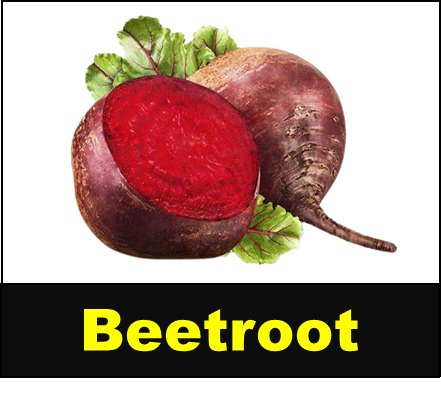
- Rich in Antioxidants:
Beetroot is packed with antioxidants, such as betalains and vitamin C, which help protect cells from oxidative damage, reduce inflammation, and support overall health.
- Heart Health:
Beetroot may promote heart health by helping to lower blood pressure, improving blood vessel function, and reducing the risk of cardiovascular diseases.
- Nutrient-Rich:
Beetroot is a good source of essential nutrients like folate, potassium, and dietary fiber, contributing to overall well-being and supporting a healthy digestive system.
Lotus root
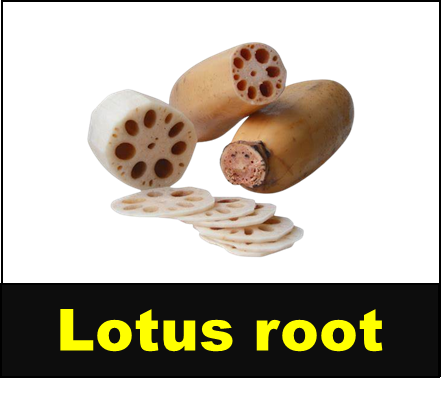
- Rich in Nutrients:
Lotus root is packed with essential vitamins and minerals, including vitamin C, vitamin B6, and potassium, which support overall health and well-being.
- Digestive Health:
The dietary fiber content in lotus root aids in digestion, promotes regular bowel movements, and supports a healthy digestive system.
- Low in Calories:
Lotus root is relatively low in calories, making it a healthy and nutritious addition to your diet, particularly for those looking to manage their weight.
Nopal cactus
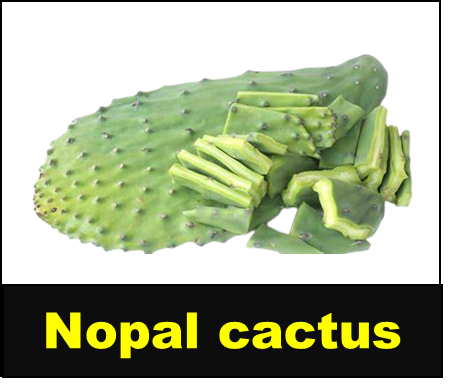
- Blood Sugar Control:
Nopal cactus may help regulate blood sugar levels due to its high fiber content and potential to reduce the absorption of sugar in the digestive tract, making it beneficial for individuals with diabetes.
- Rich in Nutrients:
Nopal cactus is a good source of essential nutrients like vitamins (such as vitamin C and vitamin A) and minerals (like potassium and magnesium), which support overall health and well-being.
- Anti-Inflammatory Properties:
Nopal cactus contains compounds with anti-inflammatory properties that may help reduce inflammation in the body, potentially lowering the risk of chronic diseases and promoting general health.
Daikon
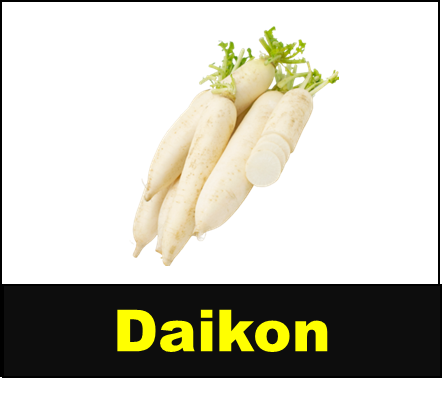
- Digestive Health:
Daikon is rich in dietary fiber, which aids digestion, promotes regular bowel movements, and supports a healthy digestive system.
- Vitamin C Source:
Daikon is a good source of vitamin C, an antioxidant that supports the immune system, skin health, and wound healing.
- Detoxification:
Daikon contains enzymes that may help detoxify the body by breaking down certain compounds and promoting the elimination of waste products, contributing to overall well-being.
Malanga
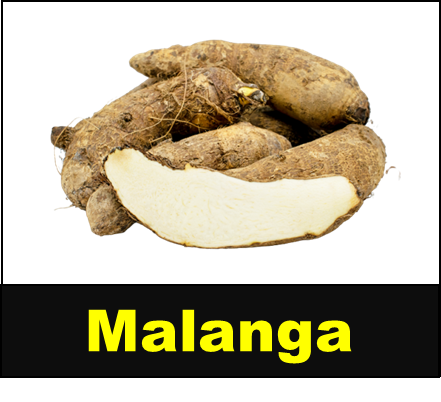
- Rich in Nutrients:
Malanga is packed with essential vitamins and minerals, including vitamin C, vitamin B6, and potassium, contributing to overall health and well-being.
- Digestive Health:
The dietary fiber in malanga aids in digestion, promotes regular bowel movements, and supports a healthy digestive system.
- Energy Source:
Malanga is a good source of complex carbohydrates, providing sustained energy, making it a valuable addition to a balanced diet for active individuals.
Celeriac
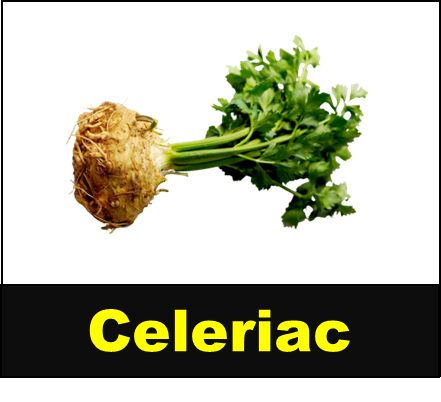
- Dietary Fiber:
Celeriac is rich in dietary fiber, which aids digestion, prevents constipation, and supports a healthy digestive system.
- Vitamin K Source:
Celeriac is a good source of vitamin K, which is essential for blood clotting and bone health.
- Low in Calories:
Celeriac is relatively low in calories, making it a healthy and nutritious addition to your diet, particularly for those looking to manage their weight.
Rutabaga
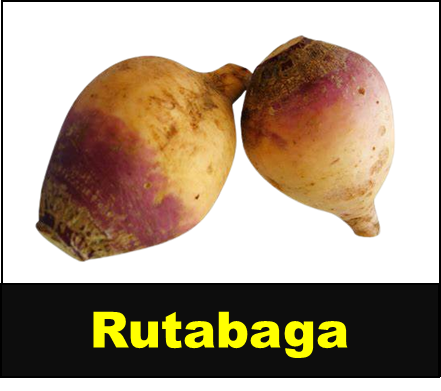
- Rich in Nutrients:
Rutabaga is packed with essential vitamins and minerals, including vitamin C, vitamin B6, and potassium, contributing to overall health and well-being.
- Digestive Health:
The dietary fiber in rutabaga aids in digestion, promotes regular bowel movements, and supports a healthy digestive system.
- Low in Calories:
Rutabaga is relatively low in calories, making it a healthy and nutritious addition to your diet, particularly for those looking to manage their weight.
Kohlrabi
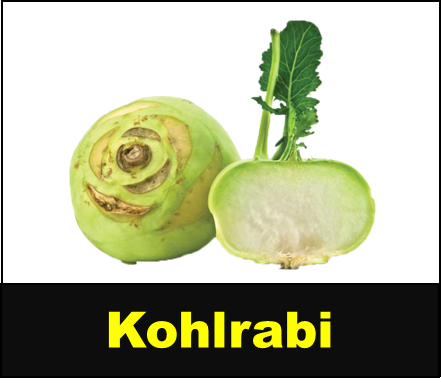
- Rich in Nutrients:
Kohlrabi is packed with essential vitamins and minerals, including vitamin C, vitamin B6, and potassium, which support overall health and well-being.
- Digestive Health:
The dietary fiber in kohlrabi aids in digestion, promotes regular bowel movements, and supports a healthy digestive system.
- Antioxidant Properties:
Kohlrabi contains antioxidants that help protect cells from oxidative damage, potentially reducing the risk of chronic diseases and promoting overall well-being.
Water chestnut

- Low in Calories:
Water chestnuts are relatively low in calories, making them a healthy addition to your diet, particularly for those looking to manage their weight.
- Rich in Nutrients:
Water chestnuts are a good source of essential vitamins and minerals, including potassium, vitamin B6, and manganese, contributing to overall health and well-being.
- Digestive Health:
The dietary fiber in water chestnuts aids in digestion, promotes regular bowel movements, and supports a healthy digestive system.
Arrowroot
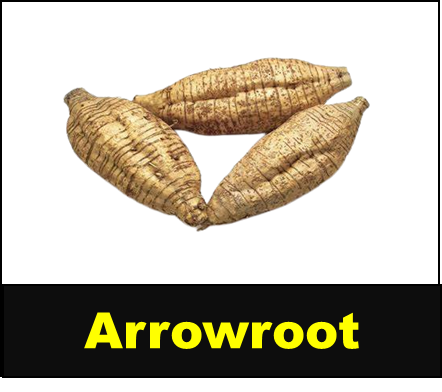
- Gentle on Digestion:
Arrowroot is easy to digest and is often used as a dietary remedy for individuals with digestive issues, such as diarrhea or upset stomach.
- Gluten-Free:
Arrowroot is a gluten-free starch, making it a suitable option for those with celiac disease or gluten sensitivities as a thickening agent in recipes.
- Nutrient-Poor Management:
Arrowroot is a starchy food with fewer calories and less fat than some other starches, making it a choice for individuals looking to manage their calorie and fat intake.
Fingerroot

- Anti-Inflammatory:
Fingerroot contains compounds with anti-inflammatory properties, which may help reduce inflammation in the body and alleviate symptoms of inflammatory conditions.
- Antioxidant Properties:
Fingerroot is a source of antioxidants, such as flavonoids and phenolic compounds, which help protect cells from oxidative damage and may contribute to overall well-being.
Shallot
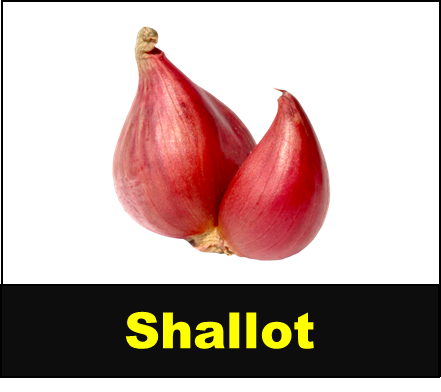
- Antioxidant Rich:
Shallots are rich in antioxidants, including flavonoids and phenolic compounds, which help protect cells from oxidative damage and reduce the risk of chronic diseases.
- Heart Health:
Consuming shallots may promote heart health by helping to lower cholesterol levels and reduce blood pressure, reducing the risk of cardiovascular diseases.
- Anti-Inflammatory:
Shallots contain compounds with anti-inflammatory properties, which may help reduce inflammation in the body and alleviate symptoms of inflammatory conditions.
